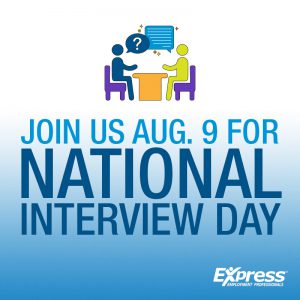It’s just professional!
You spent hours job searching and now you’ve received a few different requests for interviews with companies. However, you’ve decided that one of the jobs isn’t for you. Maybe you get busy and forget to call them back, or perhaps you are simply no longer interested in the position. Regardless of reason, the result is the same: you never got back with them.
This is never a good idea. Why?
Networking
Networking doesn’t have to mean schmoozing at parties. It’s your network of friends, family, and contacts. If you’ve spoken or met with someone in person previously, it’s much more likely that they’ll end up vouching for you during an interview.
Believe it or not, this can include past interviewers or recruiters. Just because a job isn’t right for you now doesn’t mean that something else won’t pop up in the future. Repeatedly interviewing with a company for different positions shows your interest in the company and its culture. Failing to show up for an interview without notification or never telling your contact whether you accept an interview makes you look unprofessional. And that reputation could easily spread through your network.
Reputation
If you’re interviewing with multiple companies in an industry, odds are that you might end up seeing a recruiter or interviewer again once you’re hired at a different company. It could be at a networking event, or they might even end up joining your company!
The point is, you never know when that person might show up again. And you don’t want them to remember you as the person that didn’t follow up after an interview was offered. Never burn bridges.
They Might Up Their Offer
If you receive multiple job offers, don’t make any decisions without really weighing your options. If the salary or pay rate for one job is higher at first, that doesn’t mean a different company won’t be willing to make a counteroffer when you notify them about the situation. You’ll never know if you don’t follow up with each company.
Be Easy to Get Ahold Of
Maybe your failure to follow-up was simply due to forgetfulness. That’s not so bad right? Wrong. You should put multiple notifications in your phone, or have sticky notes around the house. That next phone call could have been your dream job. But recruiters will only chase you around so much. If you’re already missing what are basically deadlines now, recruiters won’t see you as a prime candidate for the actual job.
Do you always follow up after interviews? If not, why not? Let us know in the comments section below!





